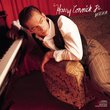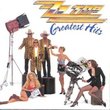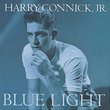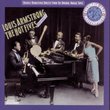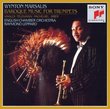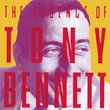| All Artists: Benny Goodman Title: Benny Goodman - Greatest Hits Members Wishing: 0 Total Copies: 4 Label: RCA Original Release Date: 4/16/1996 Release Date: 4/16/1996 Genres: Jazz, Pop Style: Swing Jazz Number of Discs: 1 SwapaCD Credits: 1 UPC: 090266848928 |
Search - Benny Goodman :: Benny Goodman - Greatest Hits
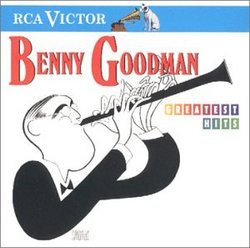 | Benny Goodman Benny Goodman - Greatest Hits Genres: Jazz, Pop
![header=[] body=[This CD is available to be requested as disc only.]](/images/attributes/disc.png?v=15401716) ![header=[] body=[This CD is available to be requested with the disc and back insert.]](/images/attributes/disc_back.png?v=15401716) ![header=[] body=[This CD is available to be requested with the disc and front insert.]](/images/attributes/disc_front.png?v=15401716) ![header=[] body=[This CD is available to be requested with the disc, front and back inserts.]](/images/attributes/disc_front_back.png?v=15401716) |
Larger Image |
CD DetailsSimilarly Requested CDs
|
CD ReviewsSatisfaction with this one depends on your budget... William E. Adams | Midland, Texas USA | 05/12/2003 (4 out of 5 stars) "If you like your jazz/swing to be pre-World War II, this disc's for you. Here are 15 cuts with Benny and orchestra, featuring pianist Teddy Wilson, drummer Gene Krupa and Lionel Hampton on vibes. You get 53 minutes of tracks laid down in the 1930's, including some famous songs and performances. With all that said, however, this RCA release may not be the best value available in Goodman CD's. The liner notes are brief, there is little data on the songs or the settings. Two of the four booklet pages are wasted touting other releases in this particular RCA "Greatest Hits" series. My copy says the disc was issued in 1996. But nowhere does it say "remastered." While the songs are not really scratchy, one can tell the original sources here were not in perfect shape or cleaned up digitally. I found my copy at a bargain price, so I am satisfied. The music, after all, is vintage Benny Goodman, and the sound quality is acceptable. If you want the single best CD of his hits that's in print, however, you might look at the other items in the Amazon listing. Read some reviews, compare prices---you might be happier with a different choice." Poor presentation William E. Adams | 07/06/2000 (1 out of 5 stars) "When rating a greatest hits complilation of one of the greatest bands in the 20th century the most important criteria are the packaging and remastering. On both counts this CD fails miserably. Scratchy sounding recordings that appear to have been dubbed by amateurs. Liner notes, recording information etc. are uninformative. Better presentations of Goodman's music exist. It's a shame that RCA/BMG take so little interest in their treasure trove of classic recordings." "In A Sentimental Mood" Rebecca*rhapsodyinblue* | CA USA | 12/29/2005 (5 out of 5 stars) ""If an individual allows his personal standard to be eroded, something of what he does is going to be compromised. It's a matter of detail, sometimes when you start losing detail, whether it's in music or in life, something as small as not sending a thank-you note, of failing to be polite to someone, you start to lose substance." ~ Benny Goodman (1909-1986) ~
The above quote was part of Benny Goodman's responses to Glenn Miller's questions to him before he had his own band: "How do you do it? How do you get started?" His initial advice was "I don't know but whatever you do, don't stop. Just keep on going. Because one way or the other, if you want to find reasons why you shouldn't keep on, you'll find them. The obstacles are all there; there are a million of them. But if you want to do something, you do it anyway, and handle the obstacles as they come. Even to this day, I don't like people walking on stage not looking good. You have to look good. If you feel special about yourself then you're going to play special." That was a totally brilliant advice from a talented jazz artist to another one-in-the-making back then. Definitely Glenn Miller paid attention to his advice and became one of the most successful recording artists in his time. A very fine clarinetist, a Lifetime Achievement Grammy Awardee and the King of Swing, Benny Goodman was one the greatest jazz artists along with Glenn Miller in the Big Band Era. This CD features a collection of fifteen Benny Goodman's greatest hits recorded between 1935 and 1937. My personal choices from this compilation include Irving Berlin's "Always," Kurtz/Mills/Ellington's "In A Sentimental Mood" and Gordon Jenkins' "Goodbye." These tunes were recorded by Benny Goodman and his Orchestra. "Body and Soul" and "After You've Gone" are two tracks from The Benny Goodman Trio (Benny Goodman on clarinet, Teddy Wilson on piano and Gene Krupa on drums). It was Gene Krupa who bestowed upon him the title of undisputed "King of Swing." Two of the best tracks are "Tea For Two" and "Moonglow," which were recorded by The Benny Goodman Quartet (the Trio plus Lionel Hampton on vibes). I highly recommend this wonderful CD to add to your collection of timeless Big Band music. Great music to listen to if you're in a sentimental mood! " |

 Track Listings (15) - Disc #1
Track Listings (15) - Disc #1